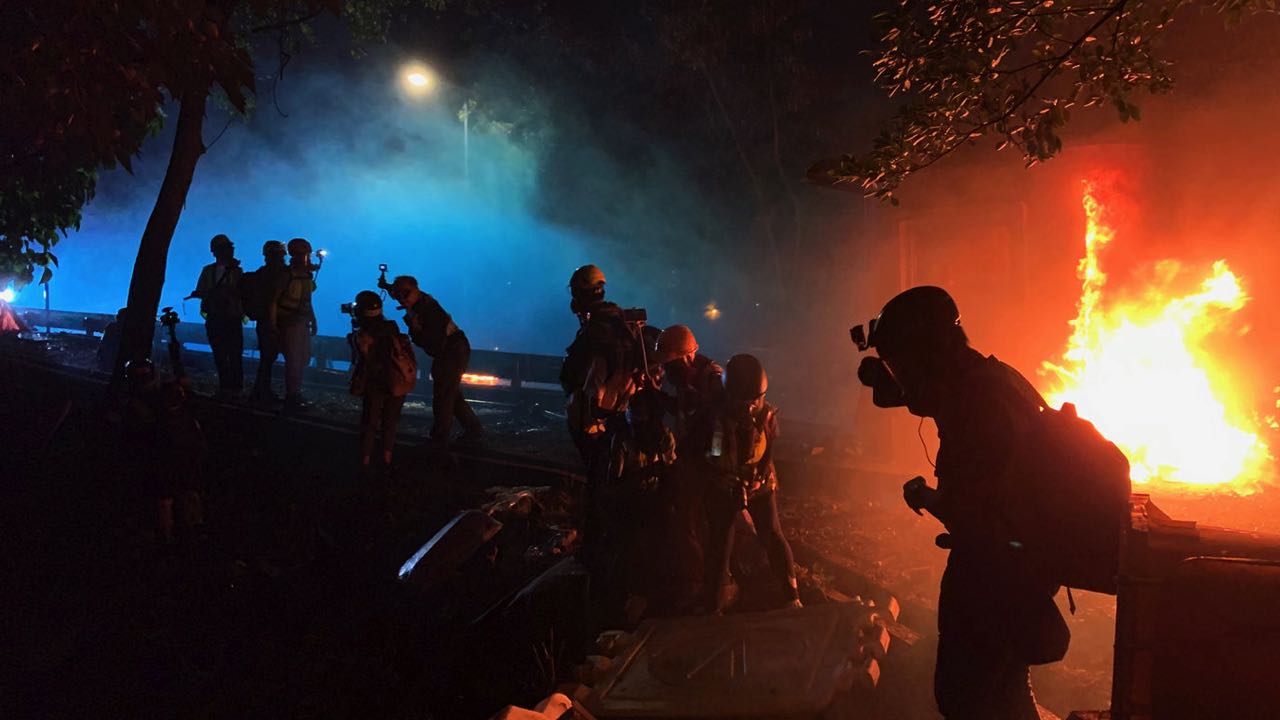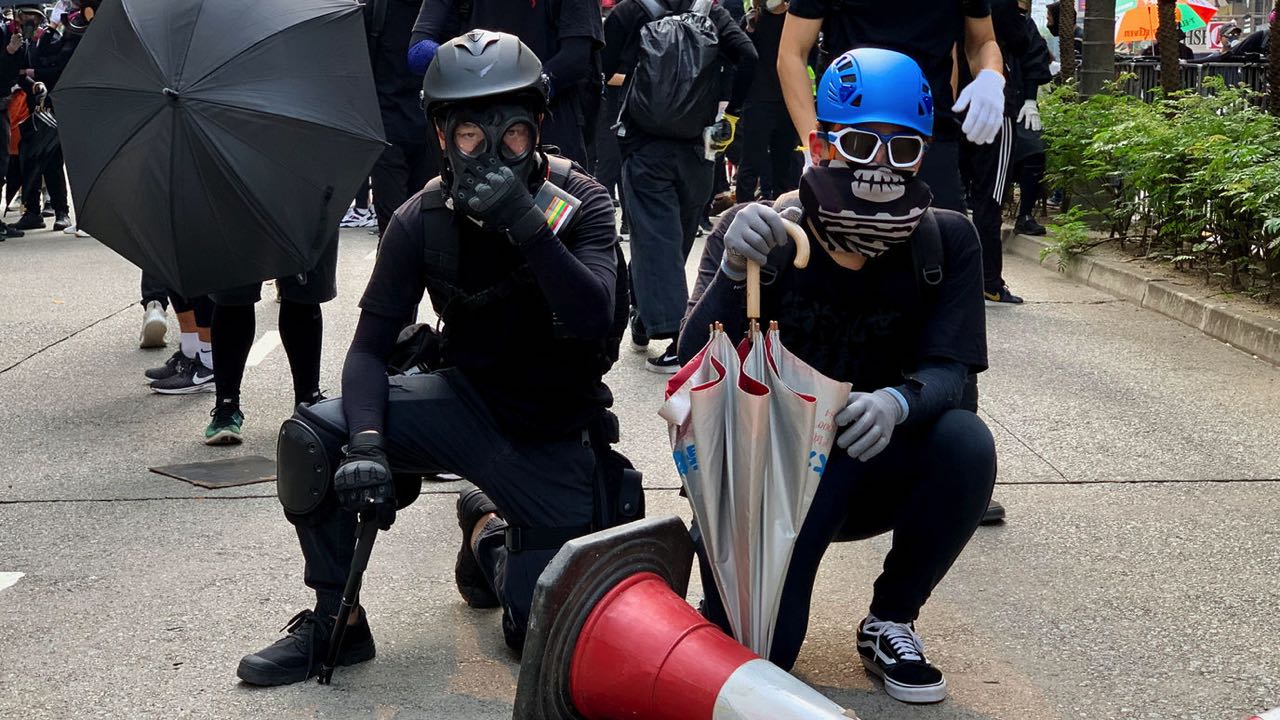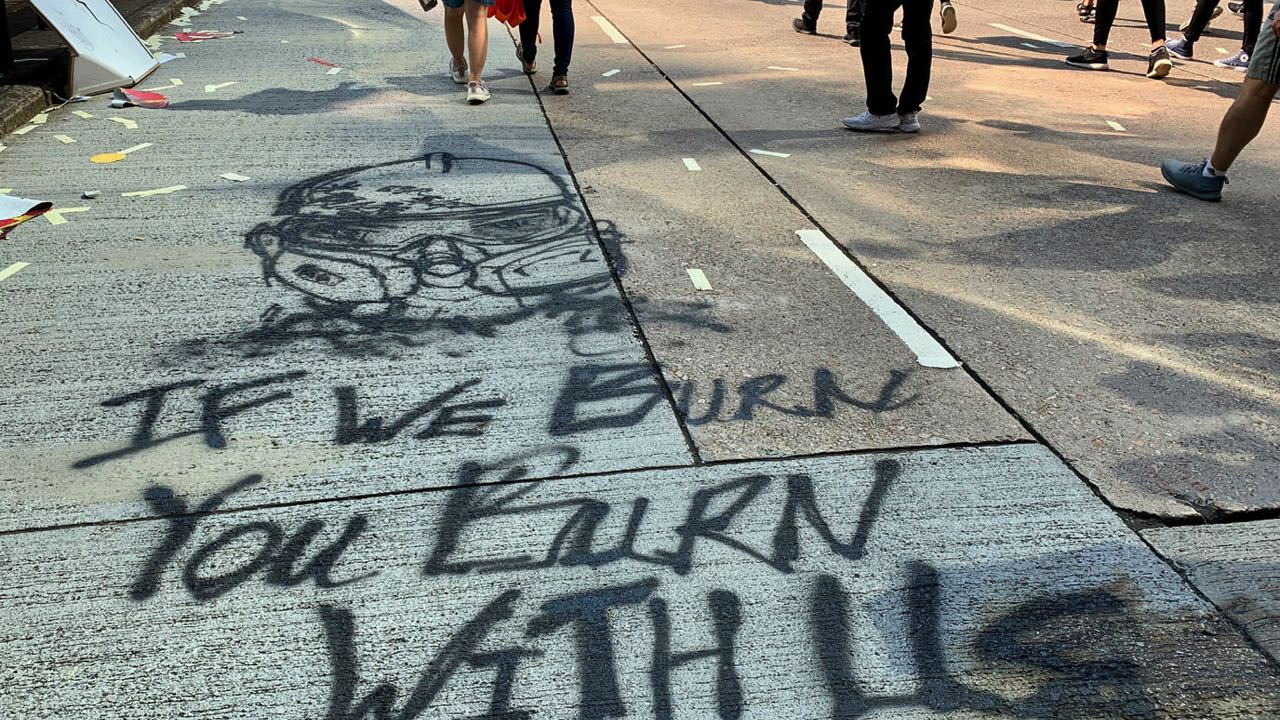by Brian Hioe
語言:
English
Photo courtesy of Lianain Films
This is a No Man is an Island film review written in collaboration with Cinema Escapist as part of coverage of the 2023 International Film Festival Rotterdam. Keep an eye out for more!
IF WE BURN, a documentary from Lianain Films covering the 2019 Hong Kong protests, is a tour de force from start to finish. Clocking in at four and a half hours (a shorter work-in-progresss cut screened at the 2020 International Film Festival Rotterdam), the film remains an intense and gripping watch through its entire length. It gives an overview of the protests, which started out against an extradition agreement that would have allowed Hongkongers to be deported to China, and eventually transformed into a movement about Hong Kong’s broader future.
Similar to other documentaries about the protests, for instance, 2021’s Revolution of Our Times, If We Burn also aims to provide a panoramic view of the movement as a whole. But If We Burn distinguishes itself with extensive detail and nuance; it dives into the protests between the bookends of July 2019’s occupation of the Hong Kong Legislative Council and November 2019’ s siege of Hong Kong Polytechnic University (PolyU). Other important moments of the movement, too, are honed in on chronologically, including the attacks by suspected gangsters on protesters in Yuen Long, the Prince Edward MTR incident, the occupation of Hong Kong International Airport in August 2022, and demonstrations against Chinese National Day on October 1st.

Photo courtesy of Lianain Films
When it depictions these key moments, If We Burn mixes footage shot in the midst of the demonstrations alongside retrospective interviews with core participants. This allows the documentary to reflect on which events caused tangible changes in the movement’s trajectory, and why that was the case. As such, we hear from key players in the protest such as Brian Leung, the lone demonstrator that took off his mask during the brief LegCo occupation, Stand News journalist Gwyneth Ho, and pro-democracy LegCo member Eddie Chu Hoi-dick.
Such reflections happen in a slow burn manner., The documentary especially highlights how tensions mount between protesters and police as time goes on, with violence escalating accordingly. The sequence showing protesters beating a suspected Chinese spy in Hong Kong International Airport, too, highlights the messiness and mounting moral ambiguity of actions taken by increasingly desperate protesters. Yet this is presented without excessive editorializing, in the way that Revolution of Our Times uses music to editorialize its footage and heroicize participants, If We Burn instead allows its images to simply speak for themselves.
This style continues until the PolyU siege, which is shot more along the lines of Lianain Films’ previous documentary about the Umbrella Movement–Umbrella Diaries: The First Umbrella–a nominee for best documentary at the 2018 Golden Horse Awards. Umbrella Diaries, too, synthesizes a series of moments into a single, compelling episode, which is the approach also taken with the PolyU siege.
But to this extent, the part of If We Burn dealing with the PolyU protest perfectly sums the dynamics seen in the film’s previous parts–including moral ambiguity to protestors’ actions, and their increasing defiance of authority figures. This brings the documentary to a neat, symmetrical conclusion. Indeed, as If We Burn goes on, one notes that the prominent activists interviewed in earlier parts of the film gradually recede in favor of a focus on young anonymous activists, also reflecting shifts in the movement as a whole. The warzone-like images of PolyU under siege serve as a metaphor for the broader state of Hong Kong as a whole–or perhaps its future.

Photo courtesy of Lianain Films
Among the most powerful of the film’s interviews are those conducted on the PolyU campus. The student demonstrators trapped in PolyU implicitly draw comparisons with the LegCo occupation, in that they are defending their homeland with their lives. Yet what feels striking about these student participants is not only their bravery, but also how cogent they are about the consequences of Hong Kong’s democratic backsliding, especially in contrast with the adults running Hong Kong’s government and toeing Beijing’s line.
It would be hard to find a film that sums up Hong Kong’s 2019 protests in as comprehensive a form as If We Burn. The documentary is an immensely powerful glimpse back in time during this critical period for contemporary Hong Kong.



